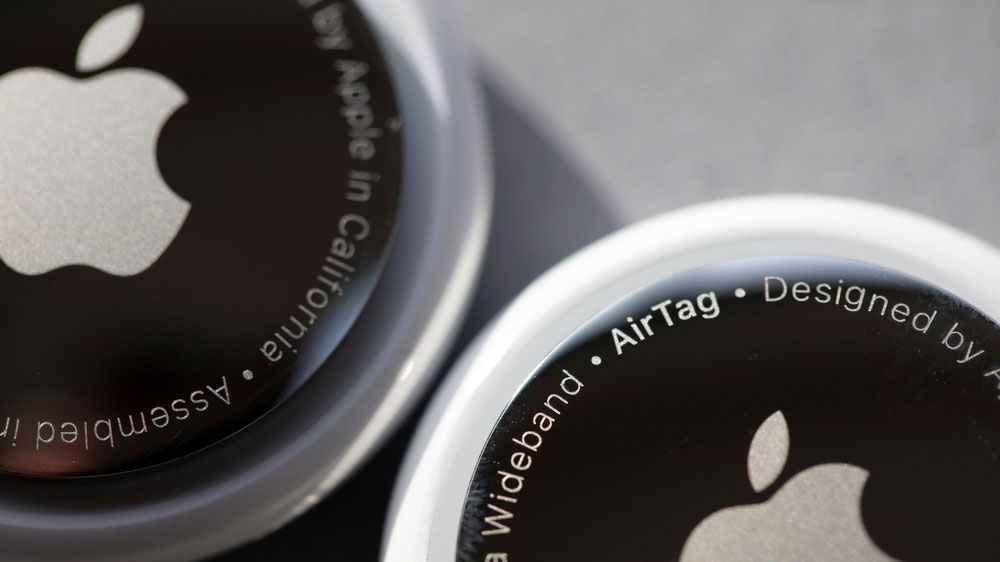It's time to pause sales of Apple AirTags — here's why
Too dangerous to exist in its current form

If you’ve been following the news, Apple’s AirTags have continually been popping up in headlines for all the wrong reasons. These are just some of them:
- Woman stalked with Apple AirTag device in Montgomery County, police say
- A tracking device made by Apple is showing up in suspected crimes
- Apple AirTags - 'A perfect tool for stalking'
But it’s this most recent headline from a Vice special report that has me wondering whether this product should even exist — at least in its current form:
“Police Records Show Women Are Being Stalked With Apple AirTags Across the Country”
This in-depth special report shows that AirTags are being used to stalk and harass women. The site obtained 150 police records over an eight-month period from eight police departments.
According to Vice, “in 50 cases women called the police because they started getting notifications that their whereabouts were being tracked by an AirTag they didn’t own. Of those, 25 could identify a man in their lives—ex-partners, husbands, bosses—who they strongly suspected planted the AirTags on their cars in order to follow and harass them.”
The ability for me to find my lost keys doesn't outweigh the safety of women being stalked.
Unsurprisingly, most of these cases involved exes. One woman reported that her ex had slashed her tiles and left an AirTag in the car. And another woman said she found AirTags attached to her car multiple times, and her ex (who has a history of assault) showed up to her locations at the same time the victim did.
Apple has made a number of changes to try to make the AirTags safer and to thwart would-be stalkers. These include proactive alerts if an unknown AirTag is traveling with you, launching an Android app that notifies users of AirTags and shortening the time window of when an AirTag chimes when separated from its owner from three days to between 8 and 24 hours.
Get instant access to breaking news, the hottest reviews, great deals and helpful tips.
But AirTags are still being used to stalk victims, which has raised questions around whether Apple has reacted quickly enough to the dangers these devices pose when in the wrong hands.
"Apple had considered mitigations for stalking but they simply hadn’t done enough," Eva Galperin, the director of cybersecurity at the Electronic Frontier Foundation, told me. "They had not consulted people who have worked directly with survivors and they had difficulty imagining the targeting of survivors who exist outside of the Apple ecosystem."
In February, Apple announced other advancements coming to the AirTag and Find My Network. One is a privacy warning during setup that's part of iOS 15.4 that stalkers will just ignore.
But other changes coming "later this year" should help. Precision finding will help iPhone 11, iPhone 12 and iPhone 13 users to see the distance and direction to an unknown AirTag, thereby making them easier to find. Apple will also display an alert on your phone when an unknown AirTag near you makes a sound, and is also working on making the sound itself louder.
Having to download an app and run a scan every single time is not parity with the kind of detection that you get in iOS. If you live outside of Apple’s walled garden, you do not receive the same protections from Apple’s products.
Eva Galperin, EFF
But all of these changes don’t help the women who are being stalked right now. And Android users are particularly vulnerable, because they would have to know to download the Apple Tracker Detect app to protect themselves and perform a manual scan.
"Having to download an app and run a scan every single time is not parity with the kind of detection that you get in iOS," said Galperin. "If you live outside of Apple’s walled garden, you do not receive the same protections from Apple’s products."
Avi Greengart, founder and lead analyst at Techsponential, says that the "vast majority" of people are using AirTags productively to keep tracker of their bags, valuables, and even children who may wonder off. But he agrees that AirTags have an Android problem.
"Apple has adjusted AirTag functionality within the Apple ecosystem," Greengart shared over email. "Where change needs to occur is on Android to ensure that they get zero-setup alerts."
Google is reportedly looking to build a Bluetooth tracker into the Android OS itself, according to 9to5Google, but that's not official and there’s no timetable for a release.
I would strongly argue that AirTags should be pulled from the market until Apple is able to implement all of the changes it has promised — and until there is a device detection scanner built directly into the Android operating system.
In its February press release, Apple touted the main benefits of AirTags when used properly, such as finding a lost wallet or tracking down critical medicine. But I don't think any of these positive uses outweigh the safety of women who are being stalked.
As Albert Fox Cahn, executive director at the Surveillance Technology Oversight Project, told Vice, “the only solution is to stop selling and supporting AirTags. This product is far too dangerous to stay on the market.”
What the EFF's Galperin is asking for is for every maker of a physical tracker to agree on a standard that allows both iOS and Android to recognize them and always look for them in the background. We're just not there yet.
It’s time for Apple to stop reacting and to press the reset button on AirTags before someone gets killed. In the meantime, see our guide on how to tell if an AirTag is stalking you — and what you can do about it.
Edit (April 29): Since the publishing of this article, Apple has released new firmware for the AirTag that increases the volume of its alert tone when detected by an unpaired iPhone.
Read next: Apple AirTags are continuing to be used maliciously, and Apple needs to do more about it
Mark Spoonauer is the global editor in chief of Tom's Guide and has covered technology for over 20 years. In addition to overseeing the direction of Tom's Guide, Mark specializes in covering all things mobile, having reviewed dozens of smartphones and other gadgets. He has spoken at key industry events and appears regularly on TV to discuss the latest trends, including Cheddar, Fox Business and other outlets. Mark was previously editor in chief of Laptop Mag, and his work has appeared in Wired, Popular Science and Inc. Follow him on Twitter at @mspoonauer.
 Club Benefits
Club Benefits






